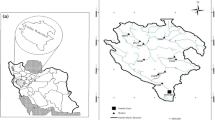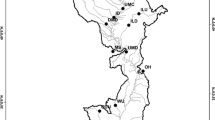Abstract.
This work presents the derivation of general streamflow cumulants from daily rainfall time series. The general streamflow cumulants can be used to compute basic streamflow statistics such as mean, variance, coefficient of skewness, and correlation coefficient. Streamflow is considered as a filtered point process where the input is a daily rainfall time series assumed to be a marked point process. The marks of the process are the daily rainfall amounts which are assumed independent and identically distributed. The number of rainfall occurrences is a counting process represented by either the binomial, the Poisson, or the negative binomial probability distribution depending on its ratio of mean to variance. The first three cumulants and the covariance function of J-day averaged streamflows are deduced based on the characteristic function of a filtered point process. These cumulants are functions of the stochastic properties of the daily rainfall process and the basin-response function representing the causal relationship between rainfall and runoff.
Similar content being viewed by others
Author information
Authors and Affiliations
Rights and permissions
About this article
Cite this article
Yue, S., Hashino, M., Bobée, B. et al. Derivation of streamflow statistics based on a filtered point process. Stochastic Environmental Research and Risk Assessment 13, 317–326 (1999). https://doi.org/10.1007/s004770050053
Issue Date:
DOI: https://doi.org/10.1007/s004770050053




